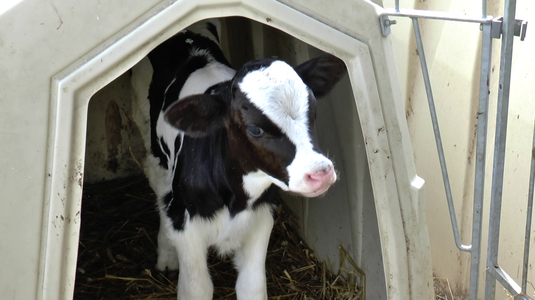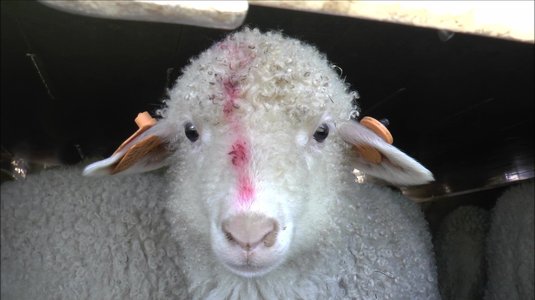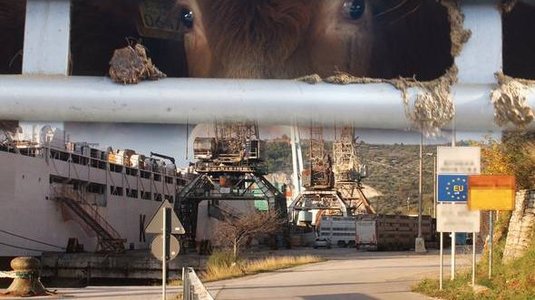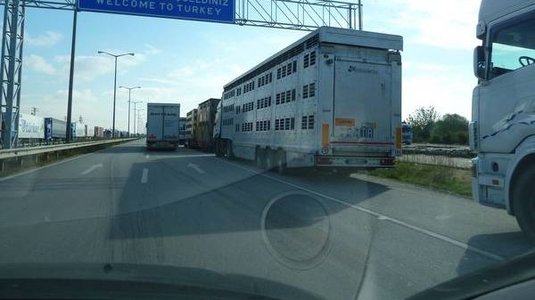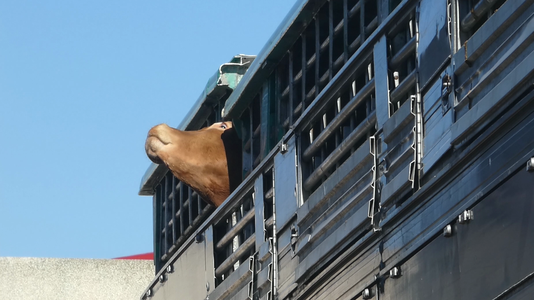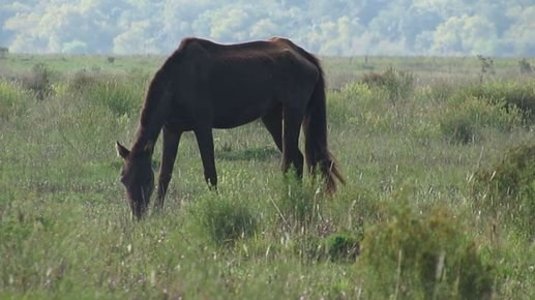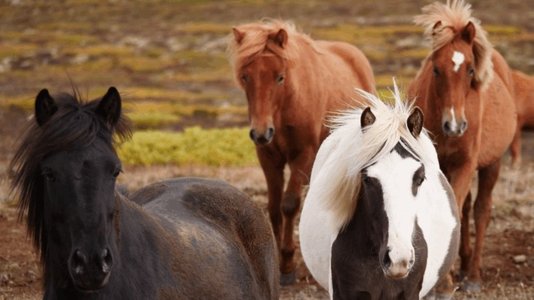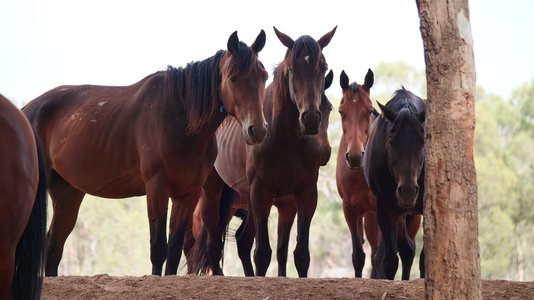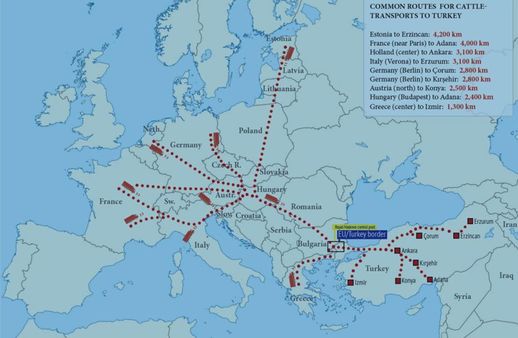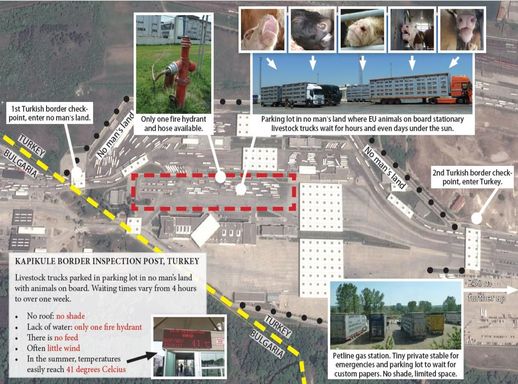Dossiers
The doomed journey: EU live exports to Turkey
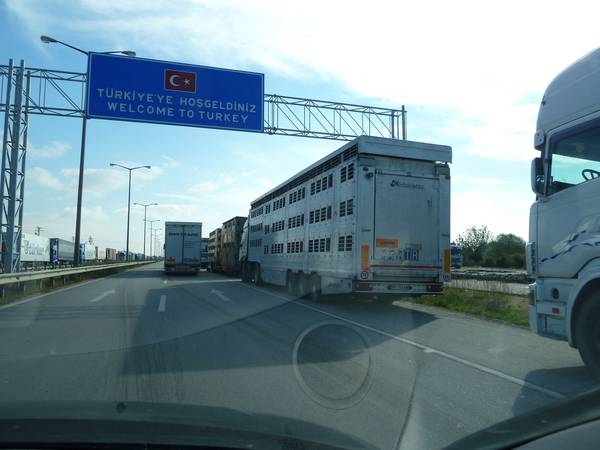
1. Authorities are turning a blind eye
This report focuses on the export of live sheep, goats and cattle, which are transported by road over thousands of kilometres from EU countries to Turkey. Five years of research are summarised (2010-2015), comprising 93 investigative days during which 352 livestock trucks were inspected. Our inspections resulted in thousands of photos, hundreds of hours of video footage and more than a thousand pages of inspection reports. Our investigative teams documented many breaches of the relevant legislation and the impact these breaches have on the animals.
EU Council Regulation 1/2005 on the protection of animals during transport should protect the animals during short- and long-distance transport within the European Union and also until the place of destination in third countries. The latter was confirmed by the Court of Justice of the European Union in April 2015. Despite the fact that Article 13 of the Lisbon Treaty recognises animals as sentient beings, many of the animals being sent from EU Member States to Turkey are transported in ways that are in breach of Council Regulation 1/2005.
Some of the most common stress factors for the animals on this route are the lack of water, feed and rest, overcrowding, insufficient headroom, temperatures in excess of the maximum permitted temperatures of 30°C and the use of transport vehicles that compromise their welfare. We documented animals that were stressed, weak, dehydrated, hungry or injured. Others simply were not able to cope with these factors and died.
The reason we wrote this five-year dossier is to illustrate the failure of the industry, the Member States and the EU Commission to protect the welfare of the animals on this route. The correspondence and meetings we held with representatives of the EU Commission, the FVO (Food and Veterinary Office), the authorities from the exporting Member States, the Turkish Government and the UECBV (European Livestock and Meat Trading Union) have not led to any substantial improvement on the ground for the farm animals that are transported on trucks to Turkey. Over the entire period of our 5-year documentation, the conditions for the animals remained almost unchanged with 70 percent of all inspected livestock trucks being in violation to Regulation 1/2005, most of which were serious in nature.
247 documented violations of Regulation 1/2005 are evidence of the incompetence and negligence of the competent authorities of the Member States and the EU Commission; they have failed to remedy the breaches and animal abuse. Enforcement within the EU is very poor. Moreover, once the animals leave the EU and enter Turkey it is impossible for the EU authorities to monitor and influence the animals’ welfare, or compliance with Regulation 1/2005. From the Turkish border onwards the livestock trucks are, from an EU perspective, virtually in a legal vacuum. Tierschutzbund Zürich, Animal Welfare Foundation and Eyes on Animals have, in cooperation with Compassion in World Farming, sent our inspection reports and letters of complaint to the Member States’ competent authorities and the Commission over the entire period of the 5-year documentation. Often the replies received from the competent authorities showed clearly that those responsible are bowing to the interests of the livestock trade, of the agricultural lobby groups and their political representatives.
In our letters of complaint to the responsible authorities we described the inadequate transport and loading conditions, unrealistic route planning and the amount of suffering caused by these conditions. Their replies always focused just on the theoretical factors, for example regarding the “adequate” number of drinking devices installed on the truck in question, the surface area of the floor of the truck in question, the presence of partitions on the vehicle etc… trying to prove to us that all measures taken by them were sufficient. But they never considered the reality on the ground that we had reported. There was no mention in their responses of how animals were reacting to these so called “sufficient” factors: their bellowing out in distress due to rising ammonia and filthy bedding, their fighting for water because the nipples were inaccessible or completely filthy, their panting and collapsing from the extreme heat in the summer when the trucks remained stationary for long periods, their fatigue and weakness from prolonged journeys that in reality took much longer than planned, the severe injuries caused by gaps in the truck and under the partitions, the trampling...
The competent authorities thus completely fail to look at the entire picture. They just hide behind excuses that on paper all the measures seemed to be satisfactory. They are working in a completely theoretical world, ignoring the practical realities experienced on the ground during these long journeys. As a result, the correct interpretation and the essence of the legislative requirements of Regulation 1/2005 are completely neglected.
The Commission’s inability to secure proper enforcement by the Member States of Regulation 1/2005 amounts to a failure to discharge its duties as Guardian of the Treaties. The failure by the Member States and the Commission (i) to secure compliance with Regulation 1/2005 and (ii) to suspend the trade in light of the widespread law breaking and animal suffering is in breach of Article 13 of the Treaty on the Functioning of the EU. This requires the Member States and the Commission, in formulating and implementing EU policies on agriculture and transport, to “pay full regard to the welfare requirements of animals”.
TSB|AWF and Eyes on Animals are calling upon the EU Commission and the Member States
to terminate the export of live animals to Turkey.
2. Summary
A large number of cattle, sheep and goats are being exported from the EU to Turkey under horrible conditions leading to serious dehydration, heat stress, injury and often even death. Eurostat data show that from 2010 until 2014, more than 850,000 sheep and 4,500 goats were exported from the EU to Turkey. In addition, over 650,000 cattle were exported from the EU to Turkey in the same period of time. Turkey imported goats, sheep and lambs for slaughter, cattle for fattening and slaughter, for milk production (called “breeding animals”), even un-weaned calves.
Between October 2010 and July 2015, inspectors from the Animal Welfare Foundation (DE), Tierschutzbund Zürich (CH), Eyes on Animals (NL) and Compassion in World Farming (UK) carried out 15 investigations along the route to Turkey to document, expose and make official Complaints about the extreme animal suffering on this route.
Journey times are extremely long and prolonged by lengthy waiting times at the border; animals are often stuck at the border on board the trucks for days and even weeks in extreme weather conditions.
There is no infrastructure for the import of live animals at Kapikule which is on the Turkish side of the border between Bulgaria and Turkey. In particular there is no facility where animals can be kept if they need to be unloaded in an emergency or during extreme delays. The animals are left on board overcrowded trucks in a parking lot inside the border, with no shade and only one water hose. On some days, 30 livestock trucks are parked here, side by side.
Additionally, once in Turkey there is not a single control post where animals can be unloaded, given food, water and a 24 hours rest period during the journey to their final destinations. Temperatures reach 45 degrees in the summer and in the winter, are below freezing with snow storms in the east part of the country leading to difficulty in using the roads.
Despite the fact that the Treaty of Lisbon recognises animals as sentient beings, many of the animals being sent from EU Member States to Turkey are transported in ways that cause horrendous suffering and in breach of Council Regulation 1/2005 on the protection of animals during transport. The most frequently observed breaches of the Regulation are:
- injured, sick, exhausted and dead animals
- unfit animals not receiving first aid
- exceeding maximum permitted journey times with animals left on board for days and for even longer than a week
- lack of water and feed
- overcrowding
- insufficient headspace
- dirty and insufficient bedding
- inadequate ventilation systems
- inadequate drinking devices
- extremely hot temperatures that exceed the maximum temperatures laid down by Regulation 1/2005
- resting times not respected
- inadequate transport vehicles (no access doors, no ability to clean water troughs, no ability to manually water animals on top floors, partitions and gaps on the side that pose risk of injury)
The breaches of the regulation are due to:
- failure of organisers and transport companies to comply with Regulation 1/2005
- failure of vehicles to satisfy standards set in Regulation 1/2005
- failure of the Member States of departure to ensure compliance with Regulation 1/2005
- failure of the competent Bulgarian authorities at the EU exit point to properly apply Regulation 1/2005
- failure of the Turkish competent authorities to comply with the European Convention for the protection of animals during international transport and the OIE standards on the welfare of animals during transport
- as of 2013 Turkey adopted EC Regulation 1/2005 but has still failed to enforce it.
In the last five years we have complained to the European Commission about the ongoing animal welfare problems on this route, but the Commission has not taken responsibility, instead pointing to the responsibility of the Member States to enforce relevant legislation. We have repeatedly written letters of complaint to all Member States involved and to the Bulgarian authorities that are in charge of the EU border inspection post at Turkey, and improvements have been promised, but on the ground little has changed. The problems we see in 2015 are just as grave and disturbing as seen in 2010.
We have held meetings with the European Commission and the FVO (Food and Veterinary Office), Ministry of Agriculture officials in Turkey, the UECBV (European Livestock and Meat Trading Union) and also individual transport companies. Still, this trade continues in the same way. We have called upon the European Commission to stop the export of live animals to Turkey until there is adequate infrastructure and legislation in force, but without any success. The failure of the Commission and the Member States involved to halt the trade and in the meantime to ensure that it is carried out in compliance with Regulation 1/2005 ignores several Recitals of Regulation 1/2005 which state:
- the European Community and the Member States are to pay full regard to the welfare requirements of the animals (point 1)
- the transportation of animals over long journeys should be limited as far as possible (point 5)
- stringent requirements are necessary so as to prevent pain and suffering for the animals
and to safeguard the welfare and health of the animals during and after transport (point 6) - long journeys are likely to have more detrimental effects on the welfare of the animals than short ones (point 18)
This dossier clearly illustrates the complexity of the problem of long distance animal transport to Turkey. The distances from EU exporting countries to the different destinations in Turkey are extremely long (some journeys are 3000 km, with days of waiting at the border and at customs) and as the journey time increases, animal well-being deteriorates due to the effects of thirst and hunger, limited space, heat or cold stress, exhaustion and trampling.
The industry also fails to ensure the wellbeing of the animals on this route with animals often being transported in breach of Regulation 1/2005; for example, the transporters often load too many animals in the trucks, give them insufficient headroom, place very little bedding on the floor and there is lack of ventilation. Often the water tank is empty or the automatic water troughs are filthy and left that way. In addition, some exporters have been found using defective paper work, loading extra animals onto livestock trucks not indicated in the papers, re-using ear tags and loading animals that do not match the paperwork.
The Member State central competent authorities also fail to ensure compliance with Regulation 1/2005, placing the blame on the local veterinarian services that have the responsibility for approving each consignment. However, the local officials are only responsible for ensuring compliance with animal health and welfare requirements during the approval of the journey; it is not their task to examine the existence of international transit documents, or the conformity of the animals with the import requirements of Turkey, nor the enforcement of the legislation on drivers’ hours and other areas of concern. This is not in their competence. There is simply no authority checking that all these necessary requirements are fulfilled. The onus is left on the exporter and importer. This is catastrophic, because when the animal trucks pass the EU exit point and arrive inside the No Man’s Land between the EU and Turkey, waiting approval to enter Turkey, just one missing document or problem in the paperwork can result in the animals waiting for days inside a parked vehicle.
Due to the length of the journeys and the delays at the border it is also difficult for officials to verify that the planning of the journey is realistic. This problem is now of extreme importance because in 2015 the European Court of Justice (ECJ) ruled that Regulation 1/2005 continues to apply to journeys to third countries, even once the animals have exited EU territory. This means that the entire waiting time inside No Man’s Land and also the journey within Turkey must comply with EU standards regarding rest, feed and water times. But Turkey has no infrastructure; there are no control posts in Turkey, and no law enforcers checking on compliance with Regulation 1/2005. Once the animals arrive in Turkey they should still be protected by EU requirements, but the situation on the ground is lawless, with nobody enforcing this.
The Member States and the Commission are aware of all these problems and yet continue to turn a blind eye to breaches of Regulation 1/2005 in the EU, at the border and once the animals have entered Turkey.
The failure of the Member States and the Commission to prevent suffering and to ensure compliance with Regulation 1/2005 is in breach of Article 13 of the Treaty on the Functioning of the EU. This provides that the EU and the Member States shall “pay full regard to the welfare requirements of animals” in formulating and implementing Union policies in certain areas including agriculture and transport.
The Member States and the Commission are incapable of overseeing or guaranteeing compliance with the animal welfare requirements of the EU legislation on this route once the animals cross into Turkey. They know the animals suffer enormously on this route and have been doing so for years.
We therefore draw the firm conclusion that the EU and its Member States must prohibit this export trade, knowing full well that this route is in violation of its own treaty and legislation.
Nearly all the principal parties involved in this trade have responsibility for failing to prevent the high level of suffering experienced by EU animals that are exported to Turkey. In particular:
- Most Member States and the European Commission are failing to ensure compliance with Regulation 1/2005 in the course of these exports.
- Most exporters and transporters are failing to comply with Regulation 1/2005 in the course of these exports.
- The European Commission has failed to do enough to press the Turkish authorities to eliminate or at least minimise the delays at the border and to install facilities at the border to enable animals to be unloaded, fed and watered in the event of unavoidable delays.
- The Turkish authorities have failed to eliminate or at least minimise the delays at the border and to install facilities at the border to enable animals to be unloaded, fed and watered in the event of unavoidable delays.
- The UECBV has done too little to press transporters to comply with Regulation 1/2005 and to press the Commission and the Turkish authorities to eliminate or at least minimise the delays at the border and to install facilities at the border to enable animals to be unloaded, fed and watered in the event of unavoidable delays.
The Commission’s failure to secure proper enforcement by the Member States of Regulation 1/2005 amounts to a failure to discharge its duties as Guardian of the Treaties.
The full dossier on live exports to Turkey consists of 134 pages.
On request, the full dossier can be made available to competent authorities, veterinarians and media representatives.
